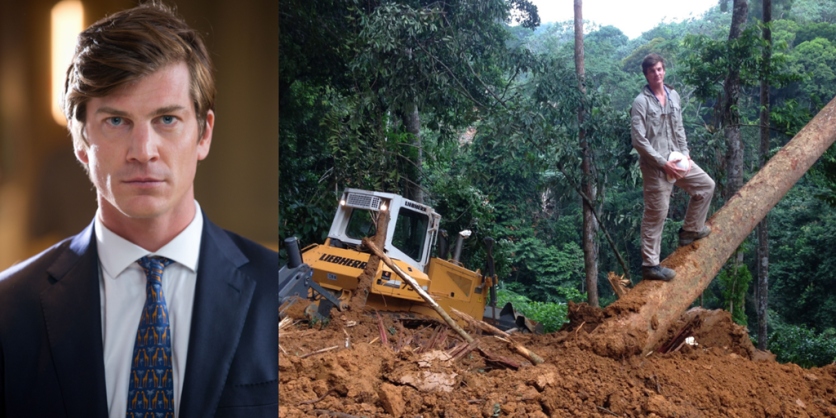
"The future of coal isn't what most people think. Metallurgical coal is not just another fossil fuel—it's a critical component for the technologies driving the transition to green energy," Nicholas Green, a prominent businessman in the coal mining space.
Green's expertise in the coal industry, which he communicates with the confidence of a man accustomed to swimming against the tide of public opinion, captures the complex reality facing the coal industry in 2025. As the world grapples with the urgent need to decarbonize, the role of coal—particularly metallurgical coal—in the global economy is undergoing a profound reassessment.
The Paradox of Metallurgical Coal
Nicholas Green is not your typical coal magnate. As an Oxford-educated engineer, Green has a long track record of successfully venturing into challenging markets. Over the past decade, he has built and operated mines across Africa, including gold mines in Mali and Ghana and a uranium project in Tanzania, before turning his attention to the United States. For his next venture, he will serve as the head of business development and engineering at Oak Grove, a metallurgical coal mine in Alabama, with a mission to reshape the narrative surrounding coal.
"People hear 'coal' and immediately think of dirty power plants and climate change, but metallurgical coal is different. It's an essential ingredient in steel production, and steel is crucial for everything from wind turbines to electric vehicles," Green explains. "Even solar panels rely on steel structures, making our product indirectly vital for the entire spectrum of renewable energy technologies."
Importantly, this is not merely a sales pitch—the data backs him up. According to the International Energy Agency (IEA), steel production accounts for about 7 percent of global greenhouse gas emissions. Yet, paradoxically, steel is also indispensable for many low-carbon technologies. The World Steel Association projects that global steel demand will reach 2.5 billion tonnes by 2030, driven in part by the needs of the renewable energy sector.
Green's journey to the coal mines of Alabama is as unconventional as his approach to the industry. "I've developed mines in Mali, Ghana, Tanzania, Congo, and South Africa, places where the challenges go far beyond geology," he reflects. "Those experiences taught me that mining isn't just about extracting resources, but also creating sustainable economic opportunities."
This global perspective will inform Green's approach to Oak Grove and his plans for a new metallurgical coal mine in Alabama later this year. "We will build a bridge to the future of energy. Every ton of this coal we produce is a ton that will go into making the steel needed for the energy transition."
The statistics paint a nuanced picture of coal's future. GlobalData forecasts that global metallurgical coal consumption will reach 1.118 billion metric tons by 2026, a notable increase from 2023.
Commitment to Efficiency and Sustainability
"We are constantly looking for ways to make operations more efficient and less environmentally impactful," says Green. This includes exploring new mining techniques, improving water management, and investing in carbon capture technologies.
Green has piloted a new methane capture technology that not only reduces greenhouse gas emissions but also provides an additional energy source for operations. His engineering background, coupled with his extensive business development experience in the sector, uniquely positions him to serve as a driving force for these innovations. "My training allows me to bridge the gap between the technical aspects of mining and the business side, which has proven invaluable for developing past and future mining operations."
For Green, the future of coal isn't just about technology or economics; it is about people. "In places like Alabama, mining isn't just a job, it's a way of life. Our responsibility will be to ensure that as the industry evolves, we are creating new opportunities for these communities," he explains.
This commitment to local development is reflected in Oak Grove's operations. The mine employs over 500 people, with plans to add more jobs as operations expand. And throughout Green's career, he has created thousands of jobs across multiple countries.
Reflecting on the challenges and opportunities that lie ahead, Green notes, "[t]he energy transition isn't going to happen overnight...for the foreseeable future, the world will need steel, and that means it will need metallurgical coal. Our job is to produce that coal as responsibly as possible while also preparing for a future where alternatives may become viable." It's a pragmatic view that acknowledges both the realities of the present and the possibilities of the future.
As the global economy navigates the complex path to decarbonization, the story of metallurgical coal and of innovators like Nicholas Green serves as a reminder that the journey to a sustainable future is rarely straightforward.
"In the end, our success will be measured not just by the coal we produce but by the positive impact we have on our communities and on the global transition to clean energy. That's the legacy I'm working to build," Green concludes.
One can't help but wonder what the future holds for this industry at the crossroads of tradition and transformation. Only time will tell if Green's vision of a responsible, innovative coal sector will prove to be a bridge to a sustainable future or a last stand for an industry some experts believe is nearing its end.
ⓒ 2026 TECHTIMES.com All rights reserved. Do not reproduce without permission.




